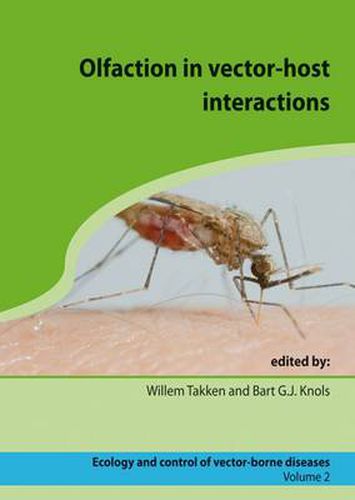Readings Newsletter
Become a Readings Member to make your shopping experience even easier.
Sign in or sign up for free!
You’re not far away from qualifying for FREE standard shipping within Australia
You’ve qualified for FREE standard shipping within Australia
The cart is loading…






This is a multi-authored book with a focus on the role of olfaction (the sense of smell) in the multitude of interactions between arthropods and their blood hosts. Most arthropods, like insects, do not depend on a vertebrate host for survival and reproduction. In contrast, the fitness of those that do, depends on how efficiently they can detect the presence of a host and actively locate it to obtain a blood meal. This is the domain of olfaction, which is perhaps the most important mode of signal exchange between hosts and blood-feeding arthropods that visit them. Important human and domestic animal diseases like malaria, dengue, West Nile virus, bluetongue and trypanosomiasis are transmitted between humans and/or domestic animals as a direct outcome of olfactory responses mediated by host odours. Increased understanding of olfaction and how this governs interactions between arthropods and blood hosts will enable the development of novel strategies to disrupt this behaviour.Many species of tsetse fly, for instance, respond over distance to simple blends of synthetic odours. Combined with traps or insecticide-treated targets, such odour-baited devices can effectively suppress fly populations and thus transmission of sleeping sickness. Such systems still need to be developed for disease-vectoring mosquitoes necessitating further knowledge on the chemical basis of interactions with humans. In 18 peer-reviewed chapters, recognized experts provide a state-of-the-art overview of olfaction in vector-host interactions, from the molecular to population biology level. Novel ideas, definition of research gaps, and a collection of the most recent studies will be of value to biology students, chemical ecologists, as well as those implementing vector control programmes.
$9.00 standard shipping within Australia
FREE standard shipping within Australia for orders over $100.00
Express & International shipping calculated at checkout
This is a multi-authored book with a focus on the role of olfaction (the sense of smell) in the multitude of interactions between arthropods and their blood hosts. Most arthropods, like insects, do not depend on a vertebrate host for survival and reproduction. In contrast, the fitness of those that do, depends on how efficiently they can detect the presence of a host and actively locate it to obtain a blood meal. This is the domain of olfaction, which is perhaps the most important mode of signal exchange between hosts and blood-feeding arthropods that visit them. Important human and domestic animal diseases like malaria, dengue, West Nile virus, bluetongue and trypanosomiasis are transmitted between humans and/or domestic animals as a direct outcome of olfactory responses mediated by host odours. Increased understanding of olfaction and how this governs interactions between arthropods and blood hosts will enable the development of novel strategies to disrupt this behaviour.Many species of tsetse fly, for instance, respond over distance to simple blends of synthetic odours. Combined with traps or insecticide-treated targets, such odour-baited devices can effectively suppress fly populations and thus transmission of sleeping sickness. Such systems still need to be developed for disease-vectoring mosquitoes necessitating further knowledge on the chemical basis of interactions with humans. In 18 peer-reviewed chapters, recognized experts provide a state-of-the-art overview of olfaction in vector-host interactions, from the molecular to population biology level. Novel ideas, definition of research gaps, and a collection of the most recent studies will be of value to biology students, chemical ecologists, as well as those implementing vector control programmes.